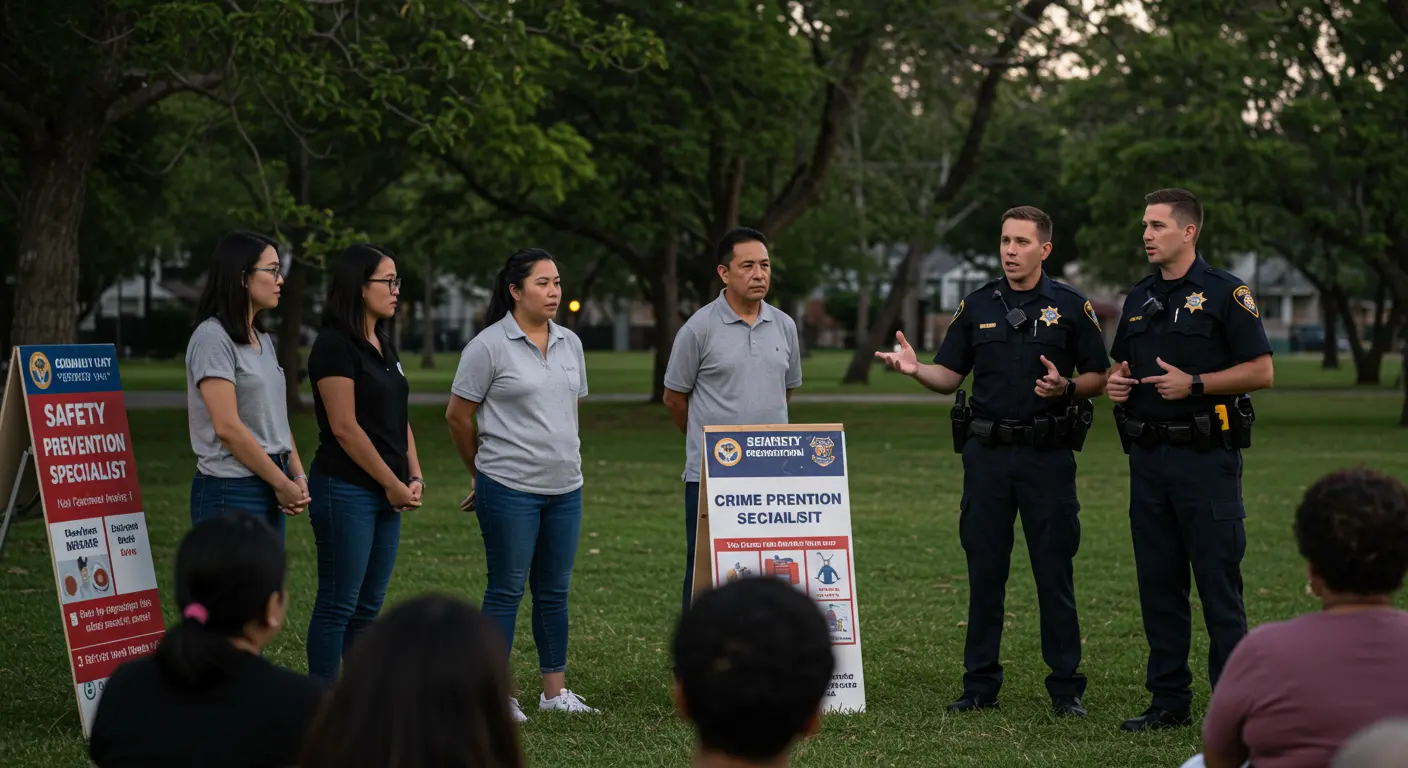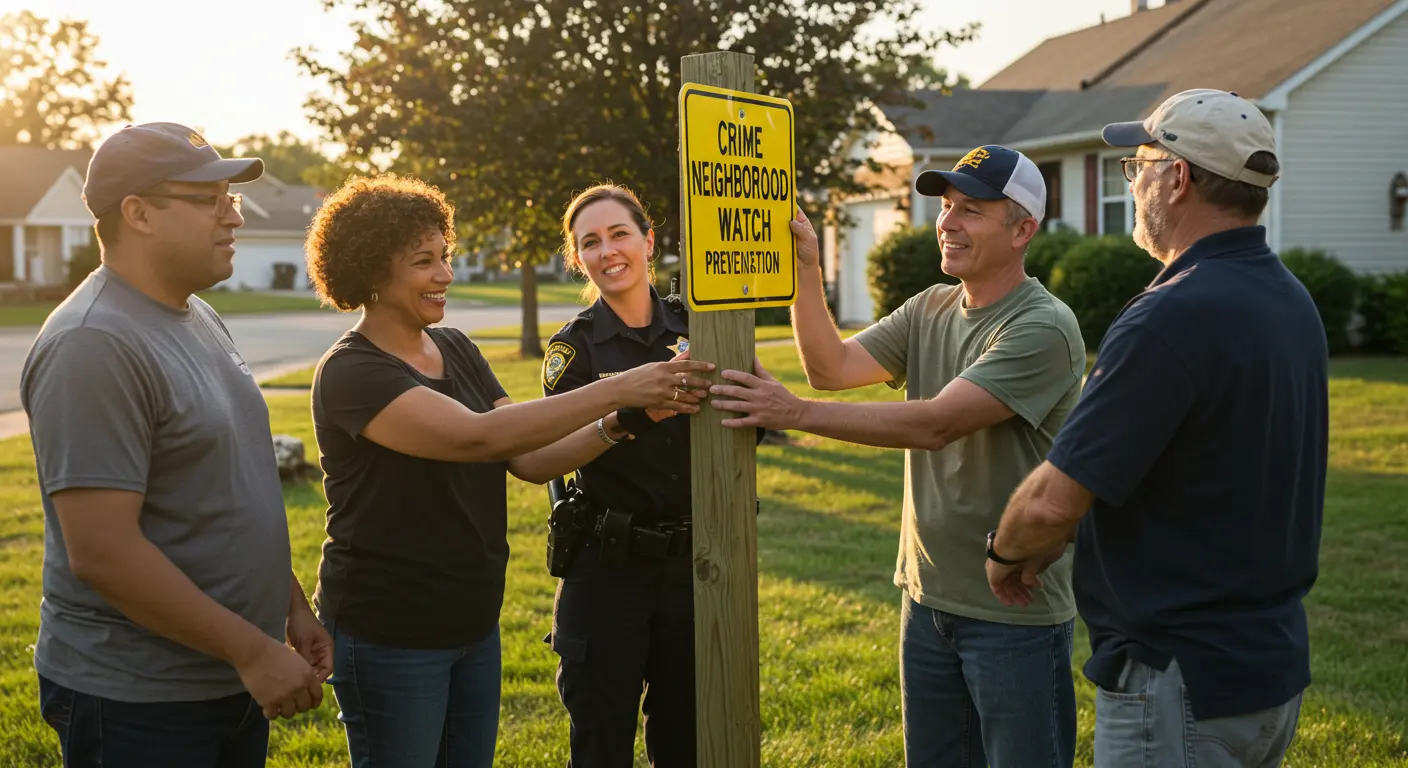
How a Crime Prevention Specialist Can Protect Your Neighborhood Today?
In today’s increasingly uncertain world, ensuring the safety of our communities has become a shared responsibility. From rising property crime rates to concerns about youth violence and public disturbances, the need for proactive crime prevention is more urgent than ever. At the heart of these efforts stands a vital but often overlooked professional: the crime prevention specialist.
Unlike traditional law enforcement officers who respond after a crime occurs, crime prevention specialists work to stop crime before it starts. Through a combination of community outreach, data analysis, and strategic planning, they create safer environments, foster stronger community bonds, and reduce long-term crime risks.
What Is a Crime Prevention Specialist?

A crime prevention specialist is a trained professional who focuses on reducing criminal activity through preventive strategies. These specialists are usually employed by police departments, city governments, schools, housing associations, or even private corporations. Their goal is to analyze potential threats and implement measures to minimize crime.
Unlike detectives or patrol officers, crime prevention specialists are not typically involved in responding to crimes in progress. Instead, they take a proactive approach, assessing risks, educating the public, and recommending security improvements based on proven methodologies like Crime Prevention Through Environmental Design (CPTED).
Responsibilities and Day-to-Day Tasks

The role of a crime prevention specialist is dynamic and multifaceted. Their daily responsibilities may include:
- Conducting safety audits of homes, businesses, and public areas
- Educating communities through workshops, seminars, and public safety campaigns
- Coordinating neighborhood watch programs and community policing initiatives
- Analyzing crime data to identify hotspots and emerging trends
- Recommending design changes to deter crime (e.g., better lighting, security cameras)
- Collaborating with schools to develop youth crime prevention programs
- Advising businesses on loss prevention and employee safety protocols
Their work is essential in creating long-term, sustainable safety strategies tailored to each community’s unique needs.
Protect Your Property with Professional Parking Lot Security Services
Qualifications and Skills Required
To become a successful crime prevention specialist, candidates typically need:
- A bachelor’s degree in criminal justice, criminology, sociology, or a related field
- Certification in CPTED or through organizations like the International Society of Crime Prevention Practitioners (ISCPP)
- Strong public speaking and communication skills
- Analytical abilities to interpret crime data and recommend practical solutions
- Experience working in law enforcement, social services, or community outreach
Ongoing professional development is also key, especially as new threats such as cybercrime and domestic terrorism emerge.
Real-World Impact: How Specialists Improve Neighborhood Safety

The benefits of having a crime prevention specialist in a community are both measurable and far-reaching:
Lower Crime Rates
By addressing issues before they escalate, these professionals help reduce property crimes, burglaries, and vandalism. Cities that invest in crime prevention have seen up to a 30% reduction in petty crime.
Increased Community Engagement
When residents are involved in safety programs, they feel more invested in their neighborhoods. Crime prevention specialists help build trust and collaboration between communities and law enforcement.
Improved Urban Planning
From well-lit parks to secure building entrances, urban environments can be designed to discourage criminal activity. Specialists provide actionable input to city planners and architects.
Youth Outreach and Education
Engaging with schools and youth organizations helps deter juvenile delinquency and promotes positive behavior early on. Workshops and mentorship programs are common tools in their toolkit.
Applications in Business, Education, and Healthcare

The work of crime prevention specialists extends far beyond residential neighborhoods. Their expertise is in demand across various sectors:
In Businesses:
- Retailers rely on them to reduce shoplifting and internal theft.
- Corporate offices consult them to safeguard employees and sensitive data.
- Warehouses and industrial sites benefit from risk assessments and intrusion prevention.
In Education:
- Schools and universities partner with specialists to develop anti-bullying and violence prevention strategies.
- They help train staff on emergency preparedness and threat response.
In Healthcare:
- Hospitals engage these professionals to ensure the safety of patients and staff in high-stress environments.
- Mental health facilities consult specialists to manage risk and prevent incidents.
Key Traits of an Effective Crime Prevention Specialist
While education and training are essential, personal qualities also play a big role in success:
- Empathy: Understanding diverse communities and their specific safety concerns.
- Problem-Solving Ability: Tackling complex issues with creativity and efficiency.
- Resilience: Working through challenges like limited funding or community pushback.
- Leadership: Guiding groups, conducting training sessions, and advocating for proactive safety.
These traits enable crime prevention specialists to not only do their jobs well but also inspire lasting change in the communities they serve.
Common Challenges They Face
The work is impactful but not without its difficulties. Common challenges include:
- Budget Constraints: Smaller communities may not have funds to hire full-time specialists.
- Resistance to Change: Some neighborhoods are skeptical of new safety programs.
- Rapidly Evolving Threats: From cybercrime to mass violence, crime trends shift fast.
- Policy Hurdles: Navigating legal and bureaucratic obstacles can delay implementation.
Despite these hurdles, crime prevention specialists remain committed to creating safe, resilient communities through innovation and persistence.
Steps to Become a Crime Prevention Specialist
Interested in pursuing this career? Here’s a step-by-step guide:
- Education: Start with a degree in criminal justice or related field.
- Experience: Gain experience in law enforcement, community outreach, or security.
- Certifications: Pursue CPTED or ISCPP credentials to strengthen your expertise.
- Networking: Join professional organizations and attend crime prevention conferences.
- Stay Updated: Continue learning to keep up with new safety technologies and best practices.
This career path is ideal for those who want to make a lasting difference while working outside traditional law enforcement roles.
Why Their Role Matters More in 2025 and Beyond
As urban populations grow and technological threats increase, the need for proactive safety planning is more pressing than ever. Crime prevention specialists are uniquely positioned to:
- Help cities reduce emergency response costs
- Protect vulnerable populations such as seniors and youth
- Design environments that deter crime naturally
- Empower everyday citizens to take part in public safety
Their contributions go far beyond preventing theft or vandalism; they strengthen the social fabric that holds communities together.
Final Thoughts: An Unsung Hero in Community Safety
Crime prevention specialists may not wear badges or drive patrol cars, but their impact is undeniable. By focusing on education, design, and community involvement, they reduce crime and build safer, more connected neighborhoods.
If you’re looking to make your neighborhood, school, or business more secure, partnering with a crime prevention specialist might be the most forward-thinking decision you can make.
Want to Learn More? Visit the National Crime Prevention Council (NCPC) to explore resources, training opportunities, and programs that promote proactive community safety.





